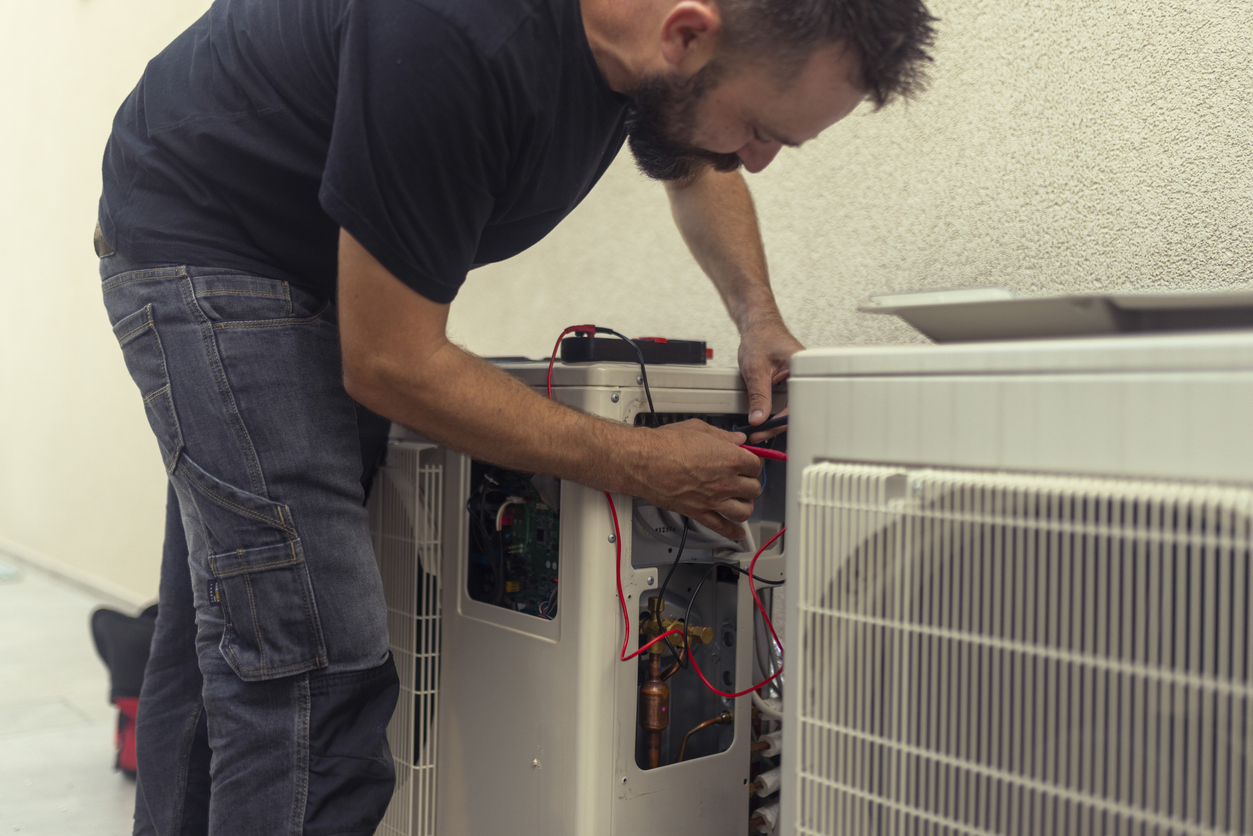
Welcome back to Part 2 of our Heat Pumps Explained series. In Part 1, we explored the basics of what a heat pump is and how they work. We covered the way heat pumps can efficiently provide both heating and cooling for a year-round home HVAC solution. Today in Part 2, we are diving deeper into heat pump performance in different climates. You will discover why heat pumps can be a great choice whether you live in a hot, temperate, or cold climate anywhere in the world.
Heat pumps are an incredibly versatile heating and cooling design. They transfer ambient heat to create the ideal temperature in your home. Naturally, their performance can vary depending on the climate and the ambient temperature outdoors. Unlike traditional heating systems, heat pumps do not have to use fuel to generate heat. Instead, they transfer heat which is what makes them so energy-efficient.
For air-source heat pumps, the baseline effectiveness of the process depends on the outdoor temperature. Let’s explore how heat pumps operate in mild to extreme climates.
Heat pumps give their most efficient performance in temperate climates where the winters are mild to moderate and do not dip below freezing in the winter. This is why heat pumps have become so popular in the Southeast US where heat pumps provide extremely efficient heating and cooling.
During cooler months, heat pumps pull in heat from the outside air. Except in “absolute zero” environments (outer space) there is always heat in the air, even if it feels cold. It then transfers the heat indoors. During mild winters, the heat pump does not have to use much energy to pull heat inside, making it more efficient while providing winter warmth. This results in lower energy bills because heat pumps are more efficient than both fuel-powered and electric heaters that generate heat.
During warmer months, heat pumps work like traditional ACs, removing heat from the inside and transferring it outdoors. This works efficiently even in very hot climates.
Recent advancements in heat pump technology have made cold-climate heat pumps more efficient than ever before. While traditional heat pumps lose efficiency in freezing temperatures, upgraded systems such as the Platinum Series heat pump have a variable-speed compressor that provides efficient performance to temperatures as low as -22°F.
Here is how modern heat pumps can handle colder climates with efficiency:
In extremely hot climates, heat pumps provide energy-efficient cooling using an upgraded version of the traditional AC refrigerant design. In regions like Florida and the Southwest where summers are sweltering, homes benefit from the heat pump’s ability to use less energy while effectively cooling indoor spaces.
During hot summer, the system removes heat from the home and transfers it outdoors, which can absorb an infinite amount of heat. Heat pumps also generate and remove condensation (water from the air) allowing them to operate as dehumidifiers. This is particularly beneficial in humid regions as dry air allows your body to cool more effectively in the light breeze created by your HVAC system. This helps your heat pump establish a more comfortable summer indoor environment and improves air quality.
Knowing your local climate is essential for selecting the most suitable heat pump system for your home. If you live in a region with mild winters and hot summers, a standard heat pump can provide high-efficiency heating and cooling all year. If you live in a region with severe winters, look for an advanced cold climate heat pump system like the Platinum Series, optimized for efficient performance in extreme cold.
Understanding your local climate is essential when selecting the right heat pump system for your home. If you live in an area with mild winters and hot summers, a standard heat pump can deliver excellent efficiency throughout the year. However, if you live in an area with harsh winters, you might consider choosing an advanced system like the Platinum Series, optimized for extreme cold.
Regardless of your climate, modern variable-speed heat pumps offer efficient performance, reduced energy bills, and dependable comfort throughout the year.
With the right heat pump, you can achieve optimal heating and cooling throughout the year, regardless of the climate you live in. Capital City Comfort Solutions can help you assess your home’s climate, heating, and cooling needs to guide you toward the best heat pump system for your home. Contact us today to learn more about heat pumps and how they can help you stay comfortable no matter the weather.